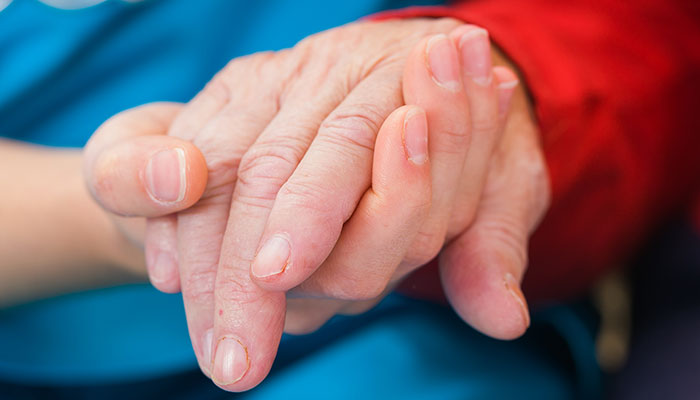Mir Monthly Information Resource
Helpful tips for family caregivers
February/March 2012
Wisdom is not easily won. But experience and reflection can guide you and the person you care for to make healthy choices on all levels.
If Dad wants to remarry
Your first thoughts may be joyous when Mom or Dad falls in love again. No more loneliness! But when the mood suggests impending marriage, you may also have concerns:
- Will they blend their finances? What about the 401k? Other assets?
- How will marriage affect Social Security?
- Does the new sweetheart bring debts or bad credit to the marriage?
- Whose money will be spent if residential care is needed?
- Who will make difficult end-of-life decisions?
- Who will inherit the house, and when? Will the surviving spouse need to move?
Don’t quit the rejoicing. But do raise these questions. A marriage is a contract saying, “What’s mine is yours, and what’s yours is now mine, too.” Unless care is taken from the outset, the law may trump your parent’s wishes for separate accounting.
Here are some tips.
Adopt a stance of curiosity. “Let’s find out, Mom, how the laws have changed since you and Dad got married.” Emphasize that the intention is to “get smart” so there are no unintended consequences. It is to ensure that she directs the future of her assets. If you sound suspicious of her fiance’s intentions, your financial concerns may seem self-serving.
Strongly suggest an elder law consultation before marriage. An elder law attorney can explain the financial implications of marriage. For instance, a prenuptial agreement is a legally binding contract. It offers protections that a will or trust cannot.
Recommend prompt update of existing documents. Encourage your parent not to dawdle post-wedding about making intended changes. If Dad wants you to have authority in medical decisions, he needs to reflect that in his power of attorney for health before the first health crisis happens! This is also true of any existing estate plan, trust, or will.
Return to topLessons from the seriously ill
 A long-time hospice nurse—someone deeply committed to caring for the seriously ill—created this list of the top five deathbed regrets she frequently observed in her patients. She vowed to take these lessons to heart. Do any of these ring true for you?
A long-time hospice nurse—someone deeply committed to caring for the seriously ill—created this list of the top five deathbed regrets she frequently observed in her patients. She vowed to take these lessons to heart. Do any of these ring true for you?
- I wish I had lived MY life, not the life others expected of me. There’s no vitality in merely “being good” in the eyes of others. Doing things to please others will simply leave you feeling empty. Doing things that reflect your personal values will leave you feeling fulfilled.
- I wish I hadn’t worked so hard. Between work and caregiving, are you allowing for quality time with people you love? What can you do to make more time available?
- I wish I had expressed my feelings more. It does take courage to let others know your thoughts and feelings. Such intimacy also adds meaning to relationships.
- I wish I had stayed connected with friends. What is cherished most in the end isn’t fame or money, but relationships. The priceless joy of being loved and giving love. Even with your time limited by caregiving, pick a few relationships to nurture.
- I wish I had let myself be happier. We don’t have choice about many things in life. But we do control what we spend our time thinking about. We can worry. We can be sad or angry. Or, instead, we can practice focusing on the things that ARE going well in our lives.
It never hurts to stop and take stock of your life. Use any regrets as a springboard for future action, bringing your deepest priorities and personal values to the fore.
Return to topSkin care and aging
 The skin is the body’s largest organ and its essential “armor.” To maintain good health, skin needs extra attention as we age.
The skin is the body’s largest organ and its essential “armor.” To maintain good health, skin needs extra attention as we age.
The skin has three layers. Working together, they act as the body’s
- shield by preventing bacteria and viruses from getting into the body and keeping body fluids from evaporating out;
- insulation by preserving body temperature through fatty padding, sweat glands, and pores;
- sensor by protecting us from harm through nerve endings that signal when things are too hot, too sharp, etc.
In the normal aging process, skin
- lightens and thins, becoming more fragile, drier, itchy, and subject to tearing;
- loses fat, which increases bruising. The absence of a fatty layer also makes it harder to maintain body temperature and affects absorption of some drugs;
- becomes less sensitive to heat/cold, pressure, and other warning signs of potential injury;
- repairs more slowly and depends more than ever on good nutrition for healing.
Daily routines are important in the care of aging skin. Help your loved one
- use moisturizers. Skin lotion helps replace missing oils and reduce itching. Moist skin also heals faster.
- stay hydrated. Ensure adequate intake of water, typically six to eight 8-oz. glasses per day. Think of this as moisturizing from the inside out.
- set up a humidifier. The heated air of wintertime often removes moisture from the air. Setting up a humidifier will also soothe airways and reduce respiratory problems common in winter.
- bathe only as necessary. Ensure bath water is warm but not too hot. Soap and water dehydrate the skin, so avoid harsh and perfumed soaps. Using bath oils is unwise because of slip-and-fall risk.
- maintain good nutrition. Protein (found in eggs, milk products, beans, poultry, meat, and fish) is particularly important to wound healing.
- avoid cuts or scrapes. Watch for sharp-edged clothing fasteners, straps, or other rough surfaces. Take care not to bruise or tear the skin when removing bandages or when using a firm grip to help someone stand.
- protect against sun exposure. During the summer, people may be used to thinking of sunscreen. But the sun can also cause problems in the winter. Use sunscreen as well as long-sleeved shirts and long pants.
Check in with a dermatologist if your loved one develops itchy, scaly, red, or flakey patches on the skin. You want to nip problems in the bud because skin that becomes cracked and bleeds is a breeding ground for infection.
Return to top


